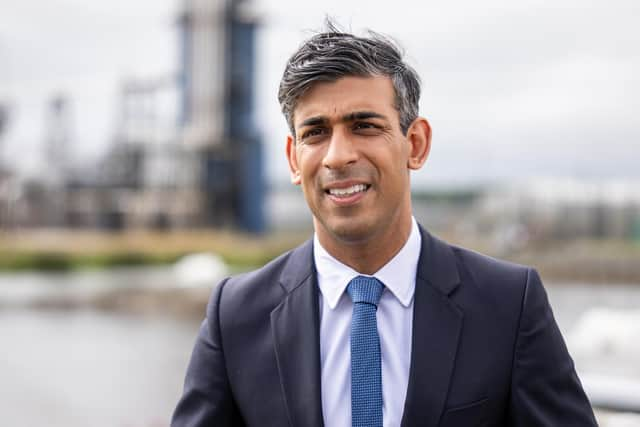Tories face electoral wipe-out in Yorkshire, new polling suggests
A poll by Electoral Calculus and Find Out Now showed the Conservatives losing 23 of its 24 seats in the region.
This would see the Conservatives narrowly hold on to Harrogate and Knaresborough by a handful of votes, but polling experts suggested that tactical voting could see Labour win all of Yorkshire’s 54 constituencies.
Advertisement
Hide AdAdvertisement
Hide AdThe polling suggested that Rishi Sunak’s party and the Liberal Democrats would be on 30 per cent of the vote in the seat, with Labour in third place with 28 per cent.


The prospect of a poor showing across the Conservative’s supposed safe-seats comes after Labour overturned a 20,000 vote majority in the Selby by-election last month.
A continued slump in North Yorkshire raises the chances of Labour having other successes in the county, with York Outer being a main target to gain at the next election.
Before the by-election in Selby, Labour sources played down suggestions that the party could be competitive in next year’s North Yorkshire mayoral race, but analysis of polling data by The Yorkshire Post found that Sir Keir Starmer’s party could have a lead of 13 points across the county’s eight seats.
Advertisement
Hide AdAdvertisement
Hide AdIn the 2019 general election, the Conservatives had a lead of around 30 points over Labour in North Yorkshire.
Martin Baxter, the founder of Electoral Calculus, told The Yorkshire Post: “ The fact that Richmond is even leaning Labour is pretty bad for the Conservatives right now.
“In strong Conservative seats the party’s vote was going down even more than the national swing.”
He said that the fact that by-elections are often outliers may give Rishi Sunak’s party some home in North Yorkshire that it can buck the national trend, but “the national trend is not favourable to them”.
Advertisement
Hide AdAdvertisement
Hide AdIt comes as Lord Goldsmith, who served as an environment minister under Boris Johnson, Liz Truss and Rishi Sunak before resigning over the Government’s climate stance at the end of June, indicated that he may support Labour at the next election.
He said that if he saw more of a commitment from Sir Keir Starmer’s shadow cabinet on the natural environment, rather than carbon, taxation and regulation, then he could be swayed.
“If I do, if there’s a real commitment now, the kind of commitment, frankly, that we saw when Boris Johnson was the leader, then I’d be very tempted to throw my weight behind that party and support them in any way I could,” he told the BBC’s HardTalk programme.
Yesterday intelligence experts pointed towards Russia as a potential culprit for the hack that accessed the details of tens of millions of voters.
Advertisement
Hide AdAdvertisement
Hide AdEarlier this week the Electoral Commission apologised for a breach of its systems after hackers were able to gain access to the watchdog for a year before being identified.
James Sullivan, director of cyber research at the Royal United Services Institute for Defence and Security Studies (Rusi), said that determining the perpetrator was currently just speculation.
But he said it was difficult to ignore the “usual suspects” of Russia and China.
The hackers were able to access reference copies of the electoral registers, held by the commission for research purposes and to enable permissibility checks on political donations.
Advertisement
Hide AdAdvertisement
Hide AdThe registers held at the time of the cyber attack included the name and address of anyone in the UK who was registered to vote between 2014 and 2022, as well as the names of those registered as overseas voters.